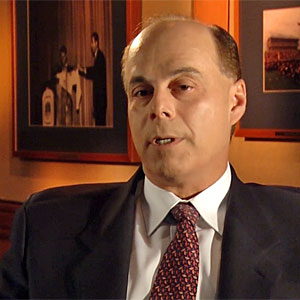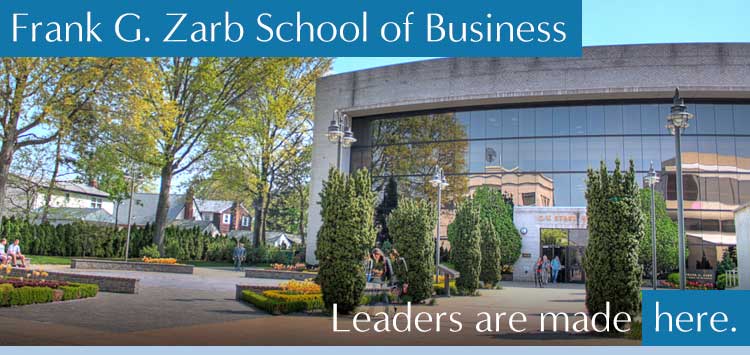Steven J. Freiberg spent 30 years with Citigroup, beginning as a management associate in 1980 and rising to the Co-Chair and CEO of the Global Consumer Group. During his career at Citi he held numerous leadership positions including CEO of the Global Cards Division and CEO of the North American Investment Products Division. After retiring from Citi he was the CEO of ETrade Financial, the online self-directed brokerage business. He also serves on numerous philanthropic and corporate boards, including Mastercard, Habitat NYC Council, March of Dimes and the Hofstra University Board of Trustees.
Why did you choose Hofstra?
I was the first in my family to go to college. My father sold furniture, my mother was a housewife. We lived probably 10 to 12 miles from here. This was an option that was convenient and cost-efficient. I had an interest in business and I knew Hofstra had a good business school. I ended up spending almost five-and-a-half years here and I was quite pleased with the outcome.
Were there any professors who were mentors, or whose classes made an impact on you?
Dr. (Al) Groppelli . He was chairman of the finance department and he had spent a lot of his time prior to academia on Wall Street. It was his expertise and deep knowledge and I would say, energy, for the topic, which was finance. He made it come alive. He made a relatively flat topic have more of an emotional life and appeal. To this day, I look on that experience as sort of a formative experience.
Steven J. Freiberg
'79, B.B.A. FINANCE; '80, M.B.A. FINANCE
Former Co-Chairman and CEO of Citigroup's Global Consumer Group, former CEO of ETrade Financial. Currently Venture Capitalist and Mastercard Board Member.
What are some of your best memories of Hofstra?
Mostly, I really enjoyed the professors. I commuted to school, I worked part time. At the time I was here, Hofstra was more of a commuter school. In the subjects that I felt passionate about - finance, economics and statistics, I look back and say my grounding in those subjects was quite strong and I think that was the basis that allowed me to spend decades competing with some of the top talent in the world.

"First and foremost, good leaders have to have vision about the future."
How do you define leadership? What makes a good leader?
First and foremost, good leaders have to have vision about the future. Good leaders also have to have the capacity to sell that vision to many people. Leadership to me really has five elements: you have a vision of the future, you have the capacity to sell that vision to hundreds if not thousands of individuals, you translate that into management plan, you execute the plan and, finally, you drive results.
It’s the capacity to choose very good people to work with. I’ve learned over the decades that you’re only as good as the team you put together, and the team is only as good as the leader they believe in. What’s the secret? There is no secret. I’ve always found the opportunity to hire people that were smarter than I was and who would work harder than I would – and to not be afraid of them. Being a good leader is allowing highly talented, highly capable people to really reach the peak of their potential.
How did Hofstra helped develop your leadership style?
I think my grounding in education, particularly in the subject matter, engendered a high degree of confidence and that confidence helped me, over time, develop a style of leadership. It was an outgrowth of the confidence I gained in the subject matter while I was here.
